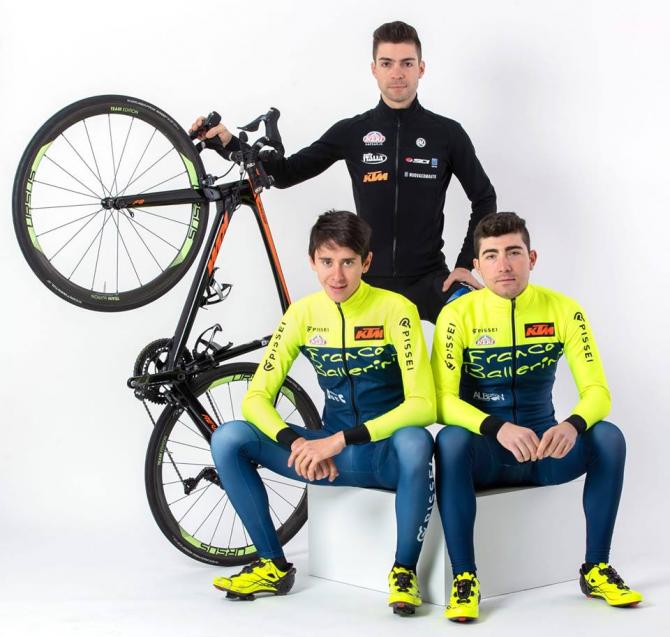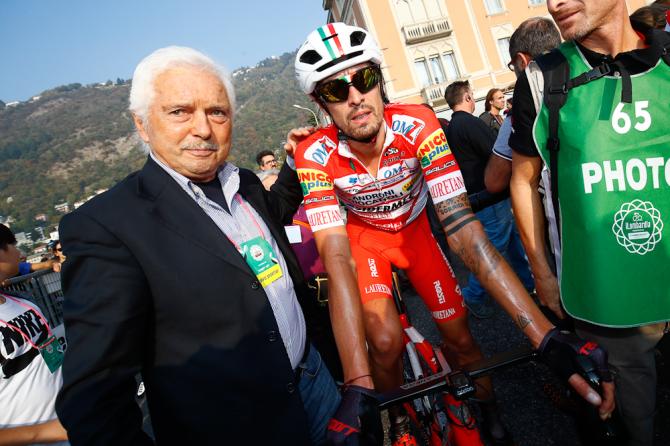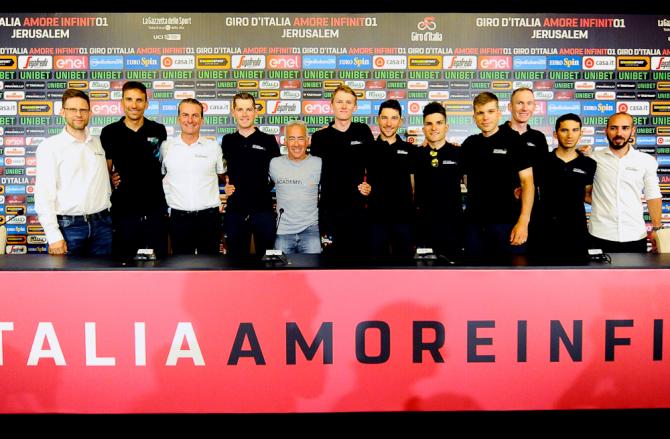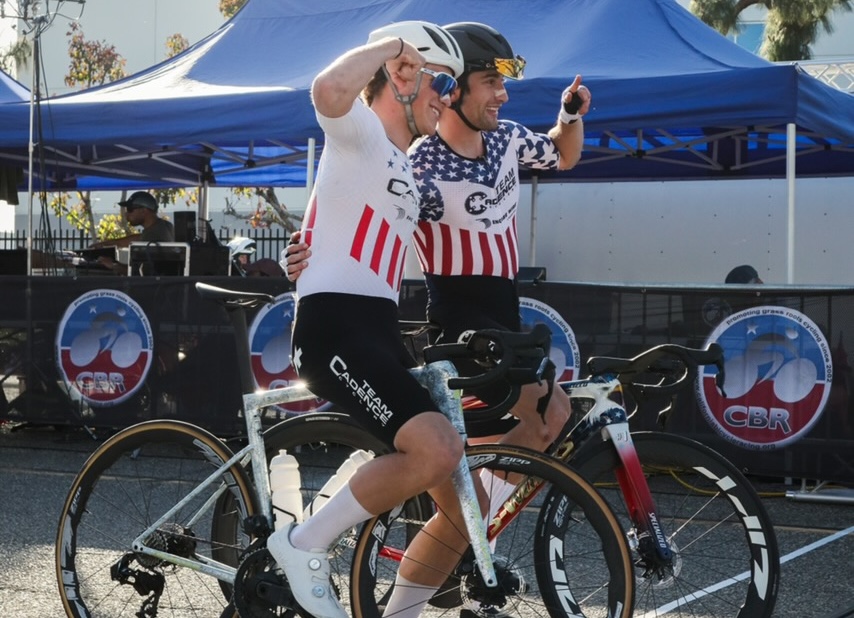A balancing act: Analysing the Giro d'Italia wildcards
How will Italian teams survive the 2020 reforms?
The latest race content, interviews, features, reviews and expert buying guides, direct to your inbox!
You are now subscribed
Your newsletter sign-up was successful
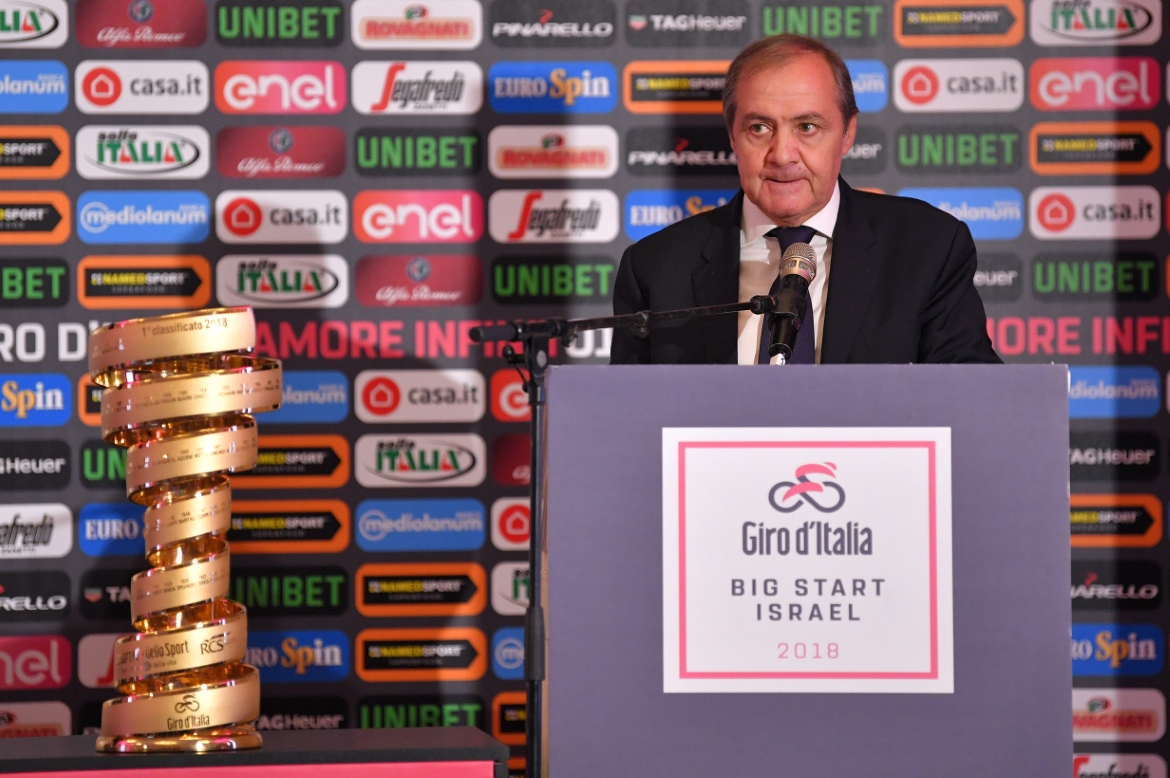
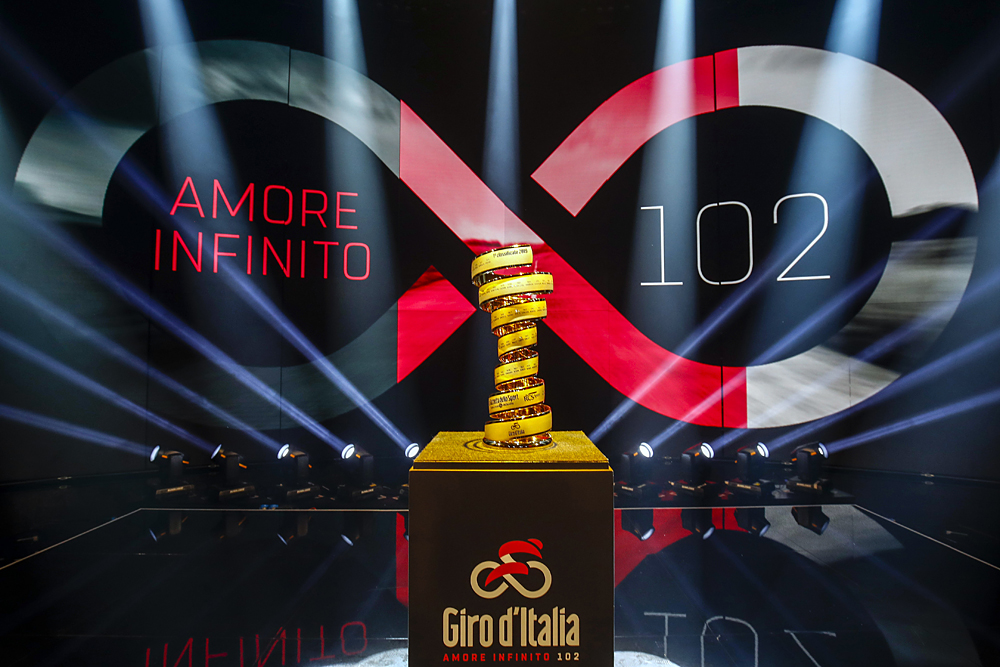
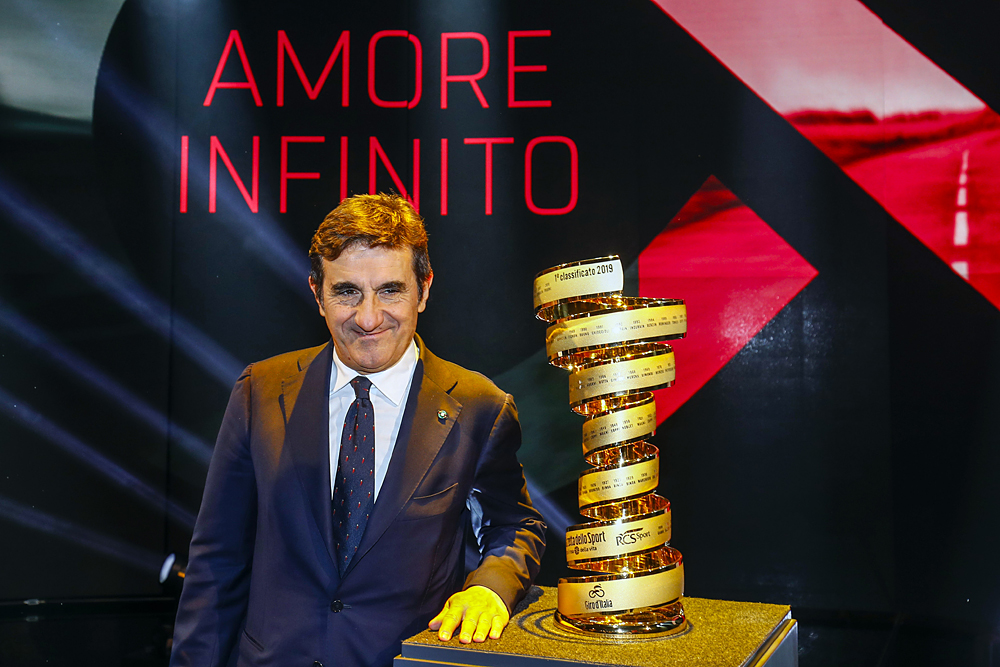
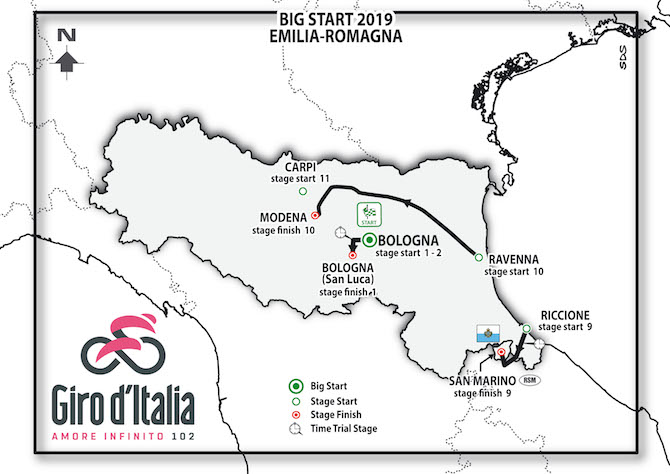
The business of designating the four wildcard invitations to the Giro d'Italia is always a delicate matter, and one senses that the process was even more fraught for RCS Sport this year. It was, after all, the final time that Mauro Vegni and company could assign all four places; from 2020, as per the impending UCI reforms, the two top-ranked Pro Continental teams will have first refusal on two of the four invitations to the Grand Tours.
The wildcard announcement, initially slated for the middle of the month, was postponed on several occasions, as RCS assessed the applicants' dossiers – or, more accurately, agonised over whether they could and should use their final free selection to award wildcards to all four Italian Pro Continental teams.
In the end, three of the four Italian squads got the nod. Androni-Sidermec had already earned selection by dint of their victory in the season-long Ciclismo Cup classification in 2018 (it is as yet unclear if the competition winner will collect the same prize in 2020), and on Friday afternoon, Bardiani-CSF and Nippo-Vini Fantini also had their tickets stamped for the Giro.
The Neri Sottoli Selle Italia KTM team, however, were left standing on the platform, as RCS Sport deemed them surplus to requirements and assigned the fourth and final wildcard berth to Israel Cycling Academy.
It is the first time since 2010 that Luca Scinto's squad have missed out on Giro selection, and one wonders whether they will survive the body blow. After losing Wilier as bike supplier and title sponsor for 2019, the squad only presented their roster and new title sponsor in early January, and although new signings Giovanni Visconti and Dayer Quintana caught the eye, the team's strength-in-depth was lacking after the departures of Jakub Marezcko and the retired Filippo Pozzato.
From a purely sporting point of view, the case for Neri Sottoli was arguably the least compelling of the four Italian teams, while the squad may also have paid an admittedly belated price for its ethical record over the years. At various points, the team's future was threatened by positive tests from Danilo Di Luca and Mauro Santambrogio on the 2013 Giro, from Matteo Rabottini in 2014, from Ramon Carretero in 2015 and from Samuele Conti in 2016.
The most crushing blow, however, may yet prove to be exclusion from the 2019 Giro. It is likely that sponsors such as Neri Sottoli would have made bigger contributions to their budget in the event of Giro participation; now it remains to be seen whether their backers will continue beyond this year given the reduced chance of a Giro wildcard from 2020 onwards.
The latest race content, interviews, features, reviews and expert buying guides, direct to your inbox!
In this year's wildcard selection, the stakes were higher than ever. For the four selected teams, meanwhile, thoughts will soon turn to the more arduous and less arbitrary process of earning a berth in 2020.
Androni, the Ciclismo Cup winners
When Androni-Sidermec found themselves in Neri Sottoli's position two years ago, they altered their philosophy to ensure they earned Giro selection in 2018. As part of a long-standing agreement with the Italian professional cycling league, RCS Sport set aside one of the four wildcards for the top-ranked team in the season-long Ciclismo Cup competition and, not by chance, Gianni Savio's men have triumphed in each of the past two seasons.
"I saved the team when we weren't selected for the Giro in 2017 by targeting the Ciclismo Cup. Androni wanted to pull out, and I said: 'Trust in me, I think I have a competitive team. We'll win the Ciclismo Cup and go to the Giro next year. The joke would be on you if you left just as we earned selection for the Giro.' And I was proved right," Savio told Cyclingnews on Friday.
"Every year we target the Ciclismo Cup. We make out a precise programme and leave nothing to chance by studying all the details and preparing for those races with altitude camps. And for the past two years, we've gone to the Giro on merit because we've won our selection on the field, as they say in football."
Savio has also singled himself out as a developer of young talent. In the past two years, he has sent Egan Bernal and Ivan Sosa on to Team Sky, and it is striking that neither rider competed at the Giro for Androni-Sidermec. Instead, Savio spared them for their future, WorldTour employer, and deployed them to win the Ciclismo Cup points that would help Androni-Sidermec reach the following year's Giro.
Androni-Sidermec will, as ever, be aggressors on the 2019 Giro. Young riders like Fausto Masnada and Andrea Vendrame will be flanked by more experienced men like Francesco Gavazzi and Manuel Belletti. Savio's team haven't won a Giro stage since Roberto Ferrari sprinted to win in Montecatini Terme in 2012, but no team spends more kilometres off the front in breakaways at each Giro. More than one wag has noted that the Giro isn't really over until Androni send out a press release proclaiming that fact on the Monday after the race finishes.
The other wildcards
Despite a roster of just 17 riders and a recent doping scandal of their own when Nicola Ruffoni and Stefano Pirazzi tested positive for growth-hormone-releasing peptides on the eve of the 2017 Giro, Bardiani CSF's position at the Giro never seemed in doubt.
Bruno Reverberi's squad have missed the Giro just once in the past 37 years, in 2009, as punishment for Emanuele Sella's positive test the previous year. As much as anything, their 2019 wildcard feels like a prize for longevity, their track record over three and a half decades, and their more recent ability to maintain sponsors. Bardiani has been title sponsor since 2013 and offered immediate and robust backing after the Ruffoni and Pirazzi positive tests, while CSF has been a co-sponsor since 2010.
Andrea Guardini, a Giro stage winner in 2012, offers them an option in the sprints, while their 100 per cent Italian roster guarantees the addition of at least eight riders to the total home contingent in the 2019 Giro gruppo.
Nippo-Vini Fantini-Faizane return to the Giro for the first time since 2016 and can attest to the subjective nature of wildcard designation. Twelve months ago, with Damiano Cunego in his final season as a professional, Francesco Pelosi's squad felt they had a strong claim on Giro selection, but were the lone Italian team to miss out.
Their roster is hardly any stronger this time around. Marco Canola, a Giro stage winner in 2015, remains their most reliable performer, while Juan José Lobato offers another potential stage-winning option. Moreno Moser is the pick of the team's new signings, and though he has never recaptured the blazing form of his first 18 months in the peloton, he remains one of Italian cycling's great enigmas.
Israel Cycling Academy's selection in 2018 came as little surprise given the role team owner Sylvan Adams had played in ensuring last year's Giro would start from Israel, but despite their high ambitions, there were no such guarantees this time around.
Aside from Ruben Plaza's second place finish at Pratonevoso, the squad did little to raise themselves above the level of their fellow wildcards in 2018, and they could have had few complaints from a sporting standpoint had RCS Sport looked elsewhere for non-Italian wildcards in 2019.
Perhaps fortunately for Israel Cycling Academy, neither Cofidis nor Wanty-Groupe Gobert – the two best-ranked Pro Continental teams of 2018 – showed any palpable desire to ride this year's Giro. Instead, the other, high-profile non-Italian applicants were Direct Energie, who are vying to return to WorldTour level in 2020. Although they impressed on their last Giro appearance as Europcar in 2014, Jean-René Bernaudeau's squad will expect to earn selection for the 2019 Tour and were thus unlikely to pack much of a punch at the Giro in May.
Israel Cycling Academy, of course, have WorldTour ambitions of their own in 2020, and are carrying a roster of some 30 riders this season, including new signings Matthias Brändle, Riccardo Minali, Davide Cimolai, Rudy Barbier, Conor Dunne and Tom Van Asbroeck, while Ben Hermans and Plaza remain in situ.
The future
Throughout cycling history, the assignation of wildcards at all major races has been cloaked in intrigue, with sporting merit often (or perhaps even usually) falling behind national and commercial interests in the decision-making process. RCS Sport attempted to bring a sheen of transparency to the operation by outlining their voting process and criteria during Michele Acquarone's sort tenure at the helm, but ultimately it remains an entirely subjective process.
Rick Delaney's Aqua Blue Sport project ended most ignominiously, but his frustration at the arbitrary wildcard process was not misplaced. "For the benefit of Pro Continental teams, just tell us what the protocol is," Delaney told Cyclingtips last year. "Then we can try and qualify or not qualify, or pay or not pay or do whatever the process is. But no one seems to know what that process is."
From 2020, there will be a process for at least half of the Grand Tour wildcards assigned, as the two the top-ranked Pro Continental teams at the end of this season will be invited automatically, albeit without any obligation to participate. For many, this will be a welcome piece of clarity in an often nebulous process, though Savio, for one, is not convinced.
"I can tell you right now what the classification will be for the Pro Continental teams in 2019: first will be Cofidis, second will probably be Direct Energie, and then in third it could be Wanty, us or many other teams," Savio said. "We have a budget of €2.5 million. How can we compete with Cofidis who have €8 million at their disposal?
"To my mind, the original draft for the WorldTour reforms was better, because if you remember, the plan was that there were only going to be 15 WorldTour teams. That was fair – and not only to help the Pro Continental teams, but because I don't think there are 18 big teams out there in the first place. By big teams, I mean teams with riders who can challenge on GC in a Grand Tour."
If Savio's prediction is correct, there will be just two wildcard berths (at best) on offer to Italian squads next year, and he called on RCS Sport to retain its current practice of keeping one invitation aside for the winner of the Ciclismo Cup. That would leave just one berth entirely at RCS Sport's discretion in 2020.
"The only way of safeguarding Italian teams is the Ciclismo Cup," Savio said. "Androni, Vini Fantini, Neri, Bardiani – we all need this competition to have the chance for our sponsors to get to the Giro. If not, it would be the end. For the whole of Italian cycling, I hope that the lifeline of the Ciclismo Cup remains in place."
